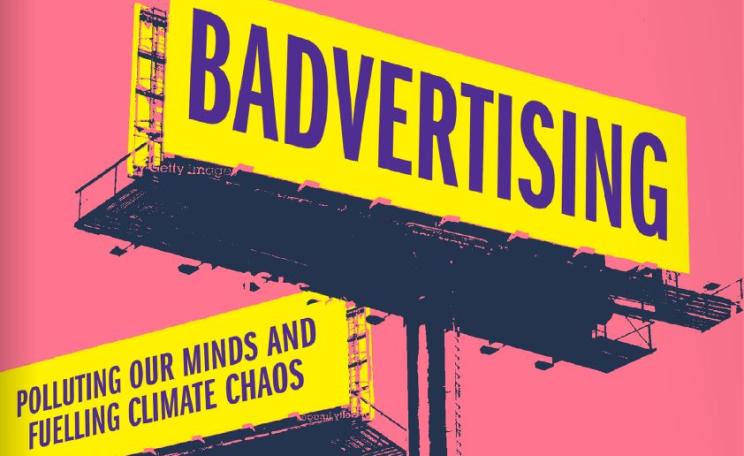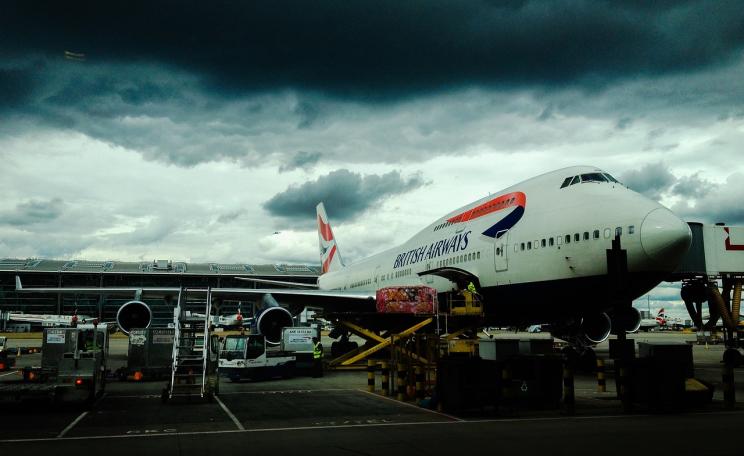Public transport bodies need to implement policies to clean up their ad space and stop pervasive private car advertising pushing people toward polluting the planet.
Campaigners have written to executives at Network Rail calling for an end to advertising high-carbon private transport such as cars to help deliver crucial climate breakdown targets.
The call comes from the Badvertising coalition, which includes the charity Possible, think tank New Weather Institute, and activist network Adfree Cities.
Network Rail’s financial interests rely on revenue which is predominantly derived from passenger travel on their networks.
Conflict
Advertising cars to public transport passengers demonstrably undermines these revenue streams, since both National Travel Survey and London Travel Demand Survey data show that higher household car ownership levels are associated with correspondingly lower levels of rail travel and overall public transport use.
New analysis of national-level official travel data reveals that increased levels of household car ownership is linked to decreased levels of public transport use. UK public transport use has still not recovered to pre-pandemic levels.
The new analysis shows that nationally, average income drivers take 38 per cent fewer train trips than non-drivers, rising to 69 per cent less rail travel for drivers in households with two or more cars.
Even without a change to a climate-friendly advertising policy, the campaigners highlight that Network Rail already have clauses in their existing codes of acceptance for advertising which are supposed to prohibit ads which may harm their interests in any way.
Network Rail have also made specific policy commitments to encourage a modal shift from road to rail. National statistics released in the summer found that rail travel had only recovered to around three quarters of pre-pandemic levels so there is a specific conflict of interest in National Rail continuing to allow high-carbon advertising.
Sabotage
Such a restriction would not only minimally impact the revenue streams of this organisation, it could be a key step in de-normalising car and high-carbon culture, encouraging public transport use and, eventually, upping much needed passenger traffic in the future.
Emilie Tricarico, Badvertising campaigner, said: “Car advertising on public transport makes no sense.
"Network Rail relies on people making sustainable travel choices for their income, so allowing car makers to try to sell directly to their passengers is an extraordinary act of self sabotage.
"What’s more, National Rail has made policy commitments to support a shift from road to rail, but hosting car ads on trains and buses does the exact opposite.
Responsible
"Public transport bodies need to implement policies to clean up their ad space and stop pervasive private car advertising pushing people toward polluting the planet.”
Leo Murray, co-director of climate charity Possible, said: “High-carbon ads are driving climate breakdown and in the case of car ads, draining public transport networks of valuable revenue by pushing people to take up driving instead.
"Ultimately, adverts for fossil fuels and fossil fuel hungry products and activities are one of the key ways in which our society perpetuates a doomed culture that sees climate damaging behaviours impact human health all across the globe.
"For people’s health, for the climate and for sustainable transport in the UK, we need all public authorities to adopt more responsible advertising policies that reflect the damage that high-carbon advertising causes.”
This Author
Brendan Montague is editor of The Ecologist. This article is based on a press release from the charity Possible.







